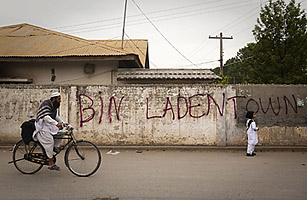
When the U.S. confronted Pakistan after the terrorist attacks of Sept. 11, 2001, there were no discussions of common goals and shared dreams. There was just a very direct threat: you’re either with us or against us. Pakistan had to choose between making an enemy of the U.S. and taking a quick and dirty deal sweetened with the promise of a lot of cash. In the end, Pakistan’s cooperation was a transaction that satisfied the urgent needs of the day, brokered by a nervous military dictator, Pervez Musharraf, who failed to explain the value of the U.S. relationship to his people. That allowed a theme to become fixed among Pakistanis: the war on terrorism was America’s war. When Pakistani soldiers started dying in battles with militant groups, when suicide bombers began killing Pakistani civilians, it was America’s fault because it was America’s war.
So as Pakistanis processed the mission that killed Osama bin Laden, many concluded that they had been betrayed by their supposed ally. How dare the Americans sneak into the country without so much as a warning and conduct a military operation just 75 miles from the capital? But they felt betrayed too by their military. How could it be that Pakistan’s armed forces, which claim a lion’s share of government spending, were clueless about the presence, a mere mile from the country’s most prestigious defense academy, of the world’s most wanted terrorist? Cyril Almeida, one of Pakistan’s best-known opinion writers, summed up the national anguish in a column: “If we didn’t know [bin Laden was in Abbottabad], we are a failed state; if we did know, we are a rogue state.”